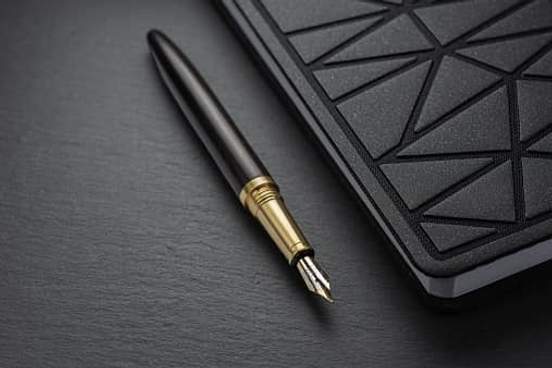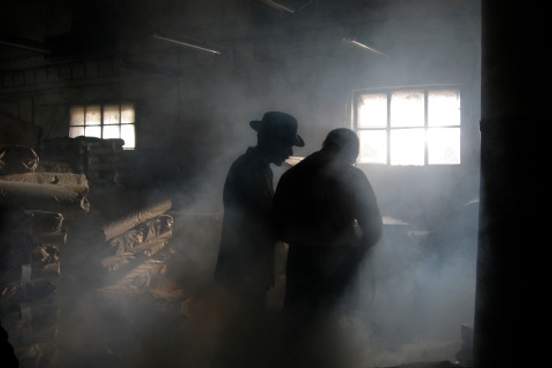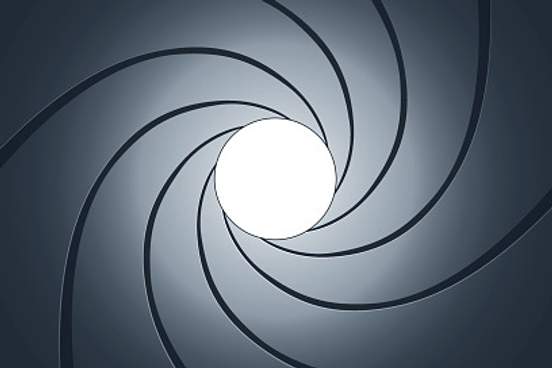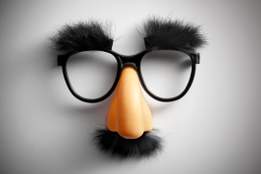
Gadget
The mystique of James Bond is partly personal, from the suave charm and physical daring of the character, and partly technological, from the (very often fanciful) tools of his trade. The formula for most Bond films, along with the gun barrel introduction, the pre-title action sequence, the elaborate schemes of an evil villain, and, at least until recently, sexist and misogynist depictions of women, includes the presentation of esoteric and complicated tools and weapons to be used on his mission.
The first gadget issued to Bond is a very sensible attaché case containing spare bullets and gold coins to help get a stranded agent home from a mission. It also contained a device that released tear gas, something used later in the film to save Bond from a seemingly impossible situation. As the films placed the character in increasingly impossible situations, he was issued with increasingly improbable gadgets, from small underwater breathing devices, ultramagnetic watches, exploding pens, and jetpacks, to cars with the firepower of an army tank that can eject passengers or function underwater like a submarine.
The word gadget is relatively new to English, first attested in the late 1800s. Its precise origin—perhaps appropriate for the name of a spy’s tool—is unknown. The Oxford English Dictionary posits that a possible connection can be made with the French term gâchette, meaning part of a locking mechanism or the trigger mechanism of a gun, but for now there is no convincing proof of this etymology. (No smoking gun, as it were.)
With the more grounded and gritty take on the character as played by Daniel Craig in recent years, the equipment has been more plausible and minimal, to the point where the filmmakers gently mock the excesses of the earlier Bond gadgets.

Henchman
Part of the menace of typical Bond villains is that they never get their hands dirty. (In the case of Dr. No, this was partly due to the fact that he had no hands.) They always represent the head of a large and devious organization, and they are accompanied and protected by characters with specialized and visually entertaining violent skills.
These henchmen also usually have a showdown with Bond toward the end of each film, which may be part of the reason that the Bond villains themselves make long and detailed explanations to Bond when he is captured, showing that their priority is to explain their evil plans as plot exposition rather then eliminating the immediate threat of the British secret agent. This tends to end badly for the villains.
Henchman ultimately derives from the Old English word for “stallion,” hengest, plus man, designating a “horse man” or a groom (a person who takes care of horses). This term came to mean “manservant,” a meaning that is now obsolete, and later came to mean “a trusted follower,” “a member of a gang,” or “a right-hand man.”
These characters are by no means always men, however; prominent enforcers working for Bond villains include Pussy Galore in Goldfinger, Fiona Volpe in Thunderball, and Xenia Onotopp in Goldeneye.
Perhaps the most memorable henchmen are Oddjob, who deployed a decapitating top hat and Jaws, who had very scary metal teeth, among other unpleasant traits.

Specter
Acronyms and code names (like “007”) were all the rage during the height of the Cold War, starting with the name of the organization charged with maintaining a balance of power between the western allies and the Soviet bloc, NATO. The official name of the Soviet Union was an initialism, U.S.S.R..
Other acronyms seem to bring the kind of intimidating bureaucratic danger that was an essential element of the plots of the Bond series. These seem to evoke terms like GESTAPO, (a German acronym from Geheime Staatspolizei, meaning “secret state police”) or the East German secret police known as the STASI, an acronym for Staatssicherheitsdienst, meaning “state security service.”
Ian Fleming often included the real-life Soviet counterintelligence agency known as SMERSH in his novels. Its name derives from the Russian abbreviation of smert′ shpionam meaning “death to spies.” From there, he invented the ominous SPECTRE (an acronym for “Special Executive for Counter-intelligence, Terrorism, Revenge and Extortion”) as an independent and multinational crime syndicate, introduced in the novel Thunderball (the title is itself the codename of a spy operation).
The mystery and menace of the word specter adds to the strength of this fictional name. It comes from the Latin spectrum (“appearance,” “specter”), from the verb specere (“to look,” “to look at”); we don’t often consider that specter is related so closely to spectacle, but it can’t be a coincidence that these terms share etymological roots with another basic English word: spy.
The spy craze of the 1960s spread to television and more acronyms with increasingly preposterous expansions, such as The Man from U.N.C.L.E, named for a fictitious secret intelligence agency called U.N.C.L.E. (“United Network Command for Law and Enforcement”). The enemy organization seeking world domination in this series was known as THRUSH (“Technological Hierarchy for the Removal of Undesirables and the Subjugation of Humanity”).

Quantum
Ian Fleming only wrote twelve novels and two short story collections about his famous spy, so the producers of the Bond films ran out of source material from Bond’s creator long ago. More important, perhaps, from the filmmakers’ point of view: they ran out of titles (since the films were often given Fleming’s titles whether or not they followed their plots).
Mining the short story collections for titles was a natural thing to do, once the novels had been adapted as films. This resulted in using the titles For Your Eyes Only, The Living Daylights, A View to a Kill, and Octopussy. The remaining short story titles seemed less exciting: The Hildebrand Rarity and 007 in New York just somehow lack the necessary punch for a Bond film. Another title, The Property of a Lady, was worked into the dialogue in an auction scene in Octopussy.
That left the slightly obtuse Quantum of Solace, a title using two Latin-based words that means, approximately, “an amount of peace.” Quantum is a word that we associate so closely with science that its independent use is rare. Indeed, in our online dictionary, there are over two dozen scientific compound terms that have quantum as their first element, from quantum chromodynamics to quantum theory.
Quantum was introduced into English by the writings of scientific and philosophical scholars of the late 1500s—a time when the lingua franca of academic writing was Latin, and many such words jumped into use in English contexts.
The plot of the film was not based on any of Ian Fleming’s writings, but using the title gives us at least a quantum of his choice of words.

Quartermaster
Fans of the James Bond films might argue about many things: best actor in the role, best theme song, best car. But everyone loves Q, the irascible weapons expert who furnishes Bond with his gadgets.
This character is introduced when he issues Bond a new handgun and a stern lecture in Dr. No. Initially referred to as “armorer” by the head of British intelligence, he is identified as “Major Boothroyd” in the film’s credits, although the name isn’t used in the film; Fleming named the character after the British weapons expert Geoffrey Boothroyd, who gave Fleming suggestions about firearms used in the popular Bond novels. (The real Boothroyd even made a short documentary hosted by Sean Connery for the BBC about the choice of Bond’s gun.)
For the second film, From Russia, With Love, a different actor played the role, and for the first time the world saw Desmond Llewelyn as the “equipment officer” from “Q Branch,” a code name that fit in with the secret service setting. Llewelyn would go on to play the role in 17 of the Bond films, appearing in more of them than any other actor.
It was the next film, Goldfinger, that established the pattern of Bond visiting Q’s secret lab, seeing the newest tools of the spy trade, and bickering with the impatient inventor, who is referred to for the first time as “Q.” The codename stands for quartermaster, the military term for “supplier,” defined in our 1934 Unabridged edition as the officer “whose duty is to provide quarters, storage, clothing, transportation, forage, subsistence, etc., for a body of troops.”
From a linguistic point of view, it’s notable that director Terence Young initially asked Desmond Llewelyn to play the character with a Welsh accent, but changed his mind when Llewelyn spoke a few lines in the distinctive regional sound of Wales. The character was thereafter known for his fussy mid-century civil servant’s bureaucratic or academic posh accent.

Martini
The classic martini is made with gin and vermouth. James Bond, in the films, usually orders (or is ordered) a “vodka martini” that is shaken, not stirred—words that are among the most famous lines in cinema. Ian Fleming actually gives the recipe, in Bond’s voice, for his version of the drink in the novel Casino Royale:
“Three measures of Gordon's, one of vodka, half a measure of Kina Lillet. Shake it very well until it's ice-cold, then add a large thin slice of lemon-peel. Got it?”
Bond later notes that “This drink's my own invention. I'm going to patent it when I can think of a good name.” The recipe was part of the script of the 2006 film Casino Royale. In Quantum of Solace, the barman on a transatlantic flight also recites the recipe, nearly word-for-word. Bond calls the drink a “Vesper,” after the double agent Vesper Lynd.
Ideas about the origin of the name of the drink itself are a bit shaky (or stirred); it may come from a coincidental combination of the California town of Martinez and the vermouth brand Martini and Rossi.
Note that Bond's martini still is mostly made of gin (Gordon’s is a venerable British brand of gin), with some vodka added. A martini made with vodka entirely displacing the gin is a variation of the classic formula, usually called a “vodka martini.” Bond certainly likes vodka; in the novel From Russia With Love he drinks a vodka tonic as well as a martini, and he is shown in the films drinking vodka both on the rocks and straight.
Over the years, some have pointed out that “shaken, not stirred” results in chipped and melting ice in the glass, thereby diluting the potency of the drink, which may not be the result seemingly intended from the confident superspy.
The cinematic Bond is suave and daring, but the character of the novels is also an occasional pedantic bore; after he receives his martini in Casino Royale, he informs the barman:
“Excellent,” he said to the barman, “but if you can get a vodka made with grain instead of potatoes, you will find it still better.”

Kulturny
Kulturny is a Russian word meaning “cultured” or “civilized,” and was used during the Soviet period to refer to art, activities, and manners that were considered enlightened and desirable. It probably entered the Russian vocabulary from French.
It was used occasionally in English—it has an entry in the Oxford English Dictionary—starting in the 1950s, when Ian Fleming began writing his novels. As a former member and close observer of the British secret service, he would have been aware of the term, and he used it no fewer than eight times in the novel From Russia With Love.
Fleming used it to describe music:
This dreadful Oriental stuff they were always putting on to please the kulaks of one of those barbaric outlying states! Why couldn't they play something kulturny? Some of that modern jazz music, or something classical. This stuff was hideous. Worse, it was old-fashioned.
And also to describe people:
Bond got up and locked the door. Tatiana snapped, “Your friend is not kulturny! It is disloyal to refer to your Queen in that manner.”
The term was apparently common enough at the height of the Cold War to be included in the dialogue of the 1963 film version of From Russia With Love, chosen as the second Bond film to be produced after President John F. Kennedy named the novel as among his favorites.





